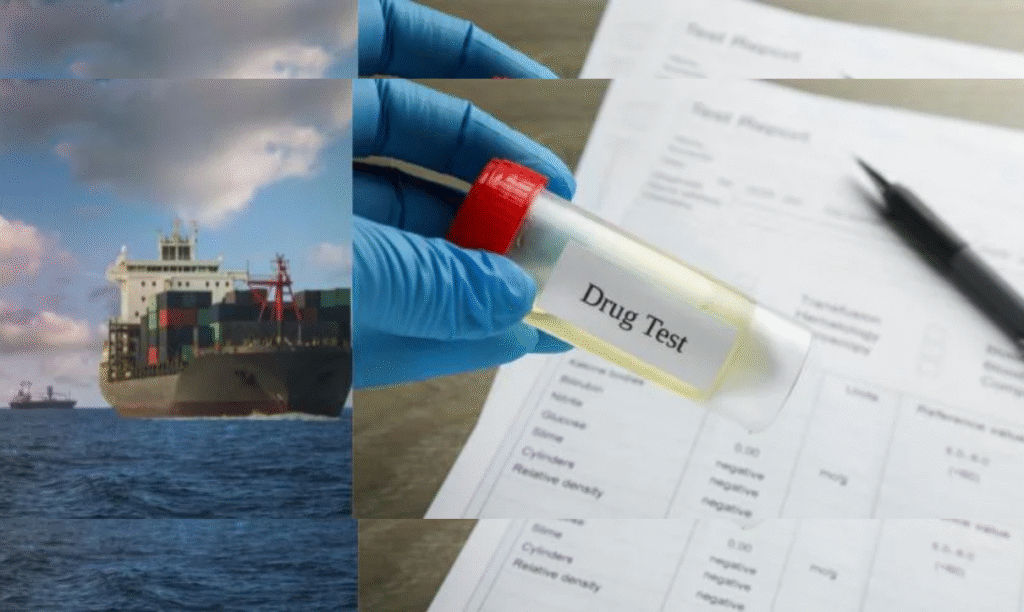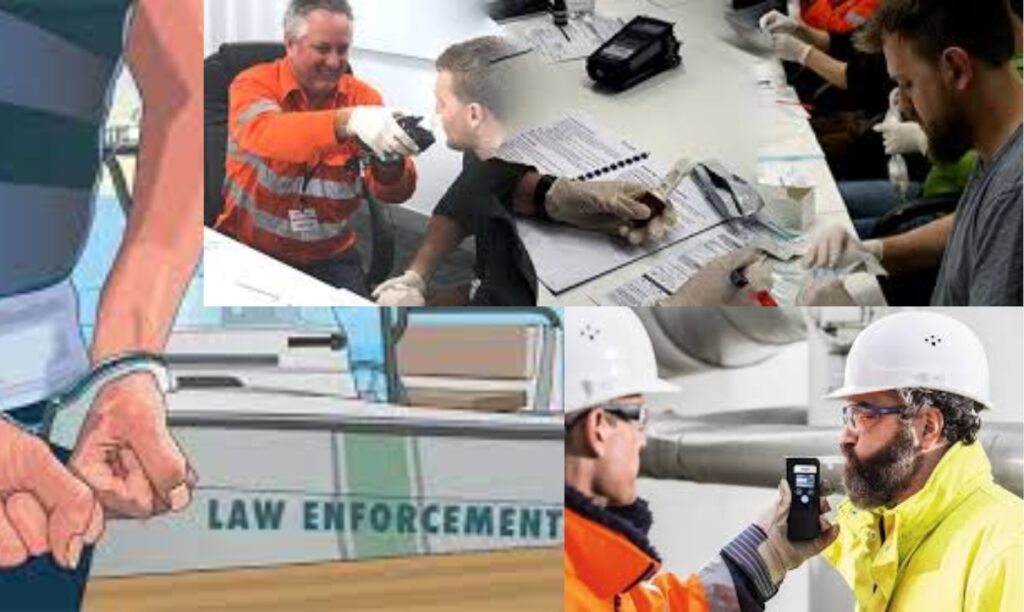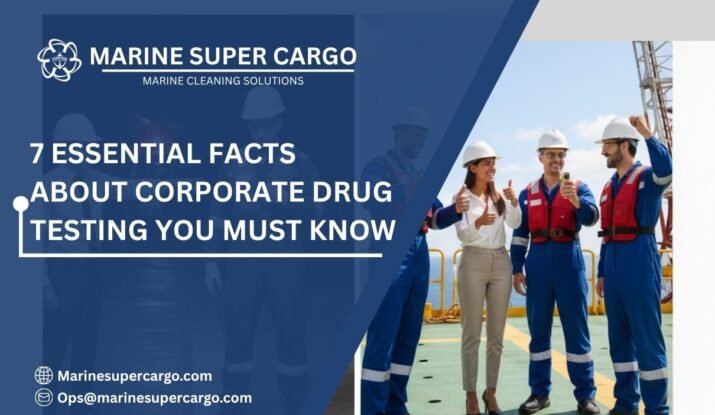In today’s fast-paced corporate and maritime industries, safety, compliance, and operational efficiency are not optional—they are essential for long-term success. One of the most effective tools for achieving these goals is the Corporate Drug Testing Program. These programs play a vital role in protecting people, assets, and the environment while fostering a healthier, more reliable workforce.
For ship owners, operators, and managers, understanding the scope of corporate drug testing can mean the difference between smooth operations and costly setbacks. Beyond reducing accidents, these programs help organizations comply with global regulations, strengthen reputations, and avoid financial losses.
In this guide, we’ll explore why corporate drug testing matters, how it works, the legal frameworks behind it, evolving technologies, and future industry trends.
What Is Corporate Drug Testing and Why Should You Care?
Corporate drug testing is a systematic approach to screen employees for substance use, including drugs and alcohol, to ensure workplace safety and regulatory compliance. Picture it as a safeguard net catching issues before they turn into costly incidents.
This process helps maintain a productive work environment, reduces accidents, and aligns company practices with health and legal standards. Whether you manage a shipping company or office operations, introducing such programs can significantly protect your assets and people.
How Does Corporate Drug Testing Work? The Basics Unpacked
Understanding the steps involved makes the process less daunting:
- Pre-employment Testing: Screening new hires before they start.
- Random Testing: Unscheduled checks to deter substance use.
- Post-accident Testing: Investigating incidents potentially linked to impairment.
- Reasonable Suspicion Testing: Conducted when impairment is observed.
Tests typically analyze urine, blood, saliva, or hair samples, each method selected based on accuracy, detection period, and testing context.

Legal Landscape: Corporate Drug Testing Compliance and Employee Rights
Navigating legal regulations around corporate drug testing requires careful attention. Different countries and states have their specific laws, but core principles remain:
- Respect privacy and confidentiality.
- Obtain informed consent.
- Follow fair and consistent testing procedures.
For maritime operations, international agencies like the IMO set regulations aligning these frameworks globally, emphasizing safety on board vessels.
Positive Impact on Safety and Productivity
Imagine a ship navigating through rough seas. Drug impairment is like a hidden iceberg endangering the crew and cargo. Corporate drug testing acts like radar, detecting threats early.
- Reduces workplace accidents by up to 50%.
- Decreases absenteeism and turnover.
- Boosts overall morale and productivity.
This safety net protects assets, lives, and company reputation, especially in high-stakes environments like shipping. Read also about Ensuring safer seas with 0 risks through cargo safety testing
Cost-Saving Benefits of Corporate Drug Testing Programs
While some see drug testing as an expense, the truth is it’s a cost-saving investment. Here’s why:
- Lower insurance premiums.
- Reduced accident-related costs.
- Minimization of legal liabilities.
- Improved workforce stability, reducing hiring/training expenses.
Investing in prevention pays dividends, safeguarding your bottom line against unexpected risks.
✅ 4 Things to Check for Safety at Sea pic.twitter.com/dAxhJQ2i6U
— Marine Super Cargo (@Marinsupercargo) September 14, 2025
Corporate Drug Testing in the Maritime Industry
The maritime sector faces unique challenges — extended work periods, limited medical access, and heavy machinery operation. This makes Corporate Drug Testing essential.
Organizations like IMCA strongly recommend testing as part of safety management systems, complementing regulatory frameworks like the MARPOL Convention.
Marine Supercargo Expands Services: Drug & Alcohol Testing for Safer Seas
Marine Supercargo, already renowned for its global marine cleaning platforms, has expanded into drug and alcohol testing services. This new offering supports ship owners, operators, and managers in maintaining crew safety, ensuring compliance with international maritime regulations, and enhancing operational efficiency.
Incorporating this service helps your fleet not only stay clean but also ensure the people on board are fit and ready for duty. It’s a proactive stride towards safer seas while respecting the industry’s rigorous standards. Also, read about the Importance of Drug Testing at Work
Emerging Technologies and Trends in Corporate Drug Testing
Drug testing technologies are evolving rapidly:
- Rapid On-site Testing: Instant results ensure swift decisions.
- Remote Monitoring: Increases testing reach without disrupting operations.
- Advanced Detection Methods: Hair testing and saliva swabs detect longer-term and immediate use.
Such innovations make programs more effective and fleet-friendly, reducing downtime without compromising accuracy.
Environmental and Ethical Considerations
Drug and alcohol testing in maritime operations is not only about compliance—it also supports broader sustainability and ethical goals. A sober, alert crew significantly lowers the risk of environmental disasters such as oil spills, collisions, or hazardous cargo mishandling.
By reducing these risks, companies actively contribute to protecting oceans, marine life, and global trade routes, aligning safety practices with long-term sustainability objectives. From an ethical perspective, testing should be carried out with respect, confidentiality, and fairness.
When implemented responsibly, it fosters trust instead of fear, ensuring seafarers feel supported rather than targeted. This balanced approach promotes worker health, accountability, and teamwork, building a positive safety culture that benefits both people and the environment.

Best Practices for Implementing Corporate Drug Testing Programs
To get the best results, consider these practical tips:
- Communicate transparently with employees.
- Choose reliable, certified testing providers.
- Train managers to identify impairment signs.
- Regularly review policies for legal and technological updates.
- Pair testing with wellness and assistance programs.
This approach builds a safety culture rather than just a compliance checkbox.
Conclusion
Corporate drug testing programs are more than policies—they are a cornerstone of workplace safety and operational excellence. In the maritime sector, where precision and vigilance are non-negotiable, these programs help companies maintain compliance with international standards, reduce costly incidents, and foster a culture of accountability. Beyond compliance, effective testing ensures a healthier, more reliable workforce, leading to smoother operations, stronger reputations, and long-term success.
As technology evolves, new tools make testing more efficient, accurate, and ethical—empowering companies to safeguard both people and the environment. By proactively investing in corporate drug testing, organizations can build resilience in an increasingly demanding global industry.
Ready to strengthen your program? Turn to trusted experts like CleanShip.co for guidance and solutions.
FAQs:
Q1. Why is corporate drug testing crucial in maritime operations?
It ensures crew alertness, reduces accidents, and complies with international laws, promoting safer and efficient marine operations.
Q2. How often should drug testing be conducted in a corporate setting?
Testing frequency varies; common practices include pre-employment, random, post-accident, and suspicion-based testing to balance safety and fairness.
Q3. What substances are typically screened for in corporate drug testing?
Common tests cover alcohol, cannabis, opioids, cocaine, amphetamines, and benzodiazepines, depending on company policies and regulations.
Q4. How does drug testing contribute to environmental safety?
A sober crew reduces the risk of human error causing spills or accidents harming marine ecosystems, aligning with MARPOL standards.
Q5. What benefits do new drug testing technologies offer ship operators?
They provide faster results, less disruption to operations, remote capabilities, and more accurate long-term substance use detection.


